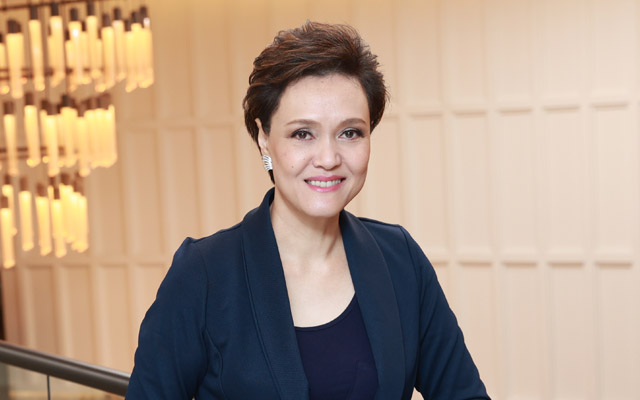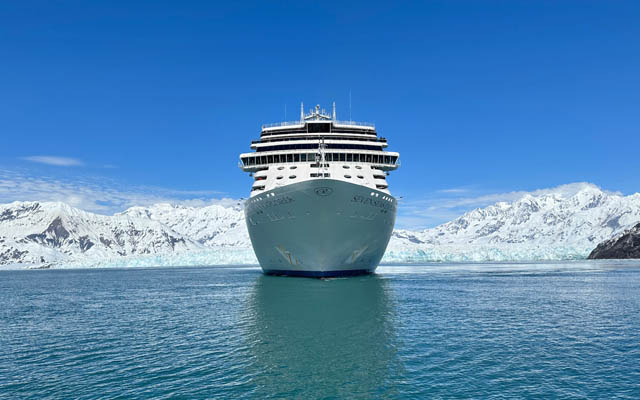As Dusit Thani Public Company enters the final year of its nine-year transformation – initiated when group CEO Suphajee Suthumpun took the helm in 2016, she reflects on unlocking value from the group's three-phase strategy – culminating in the grand reopening of its iconic flagship and the launch of Dusit Central Park in the heart of Bangkok
 In the past nine years, you went from 27 hotels to nearly 300 properties globally, what made this growth possible?
In the past nine years, you went from 27 hotels to nearly 300 properties globally, what made this growth possible?
When I joined in 2016, Dusit had only 27 properties in 8 countries, and most of them were in Thailand.
Today, we have 297 across 18 countries, with more than 70 in the pipeline.
This is a shift that resulted from deliberately expanding our managed portfolio while staying asset-light.
Today, we still retain 10 owned assets, but the bulk of our growth is now attributed to management contracts and strategic partnerships, which enables flexibility and scalability.
Your nine-year roadmap is culminating in Phase Three: Unlocking Value. Can you share the major milestones across each phase?
The first three years were about laying the foundation: Upskilling people, refining processes, and resetting the mindset. During 2016 to 2019, 90 per cent of our revenue still came from owned assets. That was something we had to change to unlock greater growth.
Phase Two was about building new engines, including our food business, education unit, and entering new service verticals.
Phase Three holds the key to proving our strategy. We’re now monetising those investments, with strong revenue flows from hospitality, education, real estate, and food.
In today’s landscape, we can no longer focus just solely on the hotel business – we have to create an engine that powers long-term resilience.
Dusit has taken a bold expansion path. Why was this the right move for a Thai brand at this time?
If you look at the world today, everything is interconnected. Offering hospitality alone is no longer enough.
Customers want meaningful experiences, and that extends into wellness, education, and food that reflects cultural identity. By moving into these adjacencies, we’ve created a more integrated and resilient business model, growing horizontally while also deepening the brand.
How do you ensure that scale hasn’t diluted the soul of the Dusit brand?
It comes down to culture. When I started, we defined five ‘graciousness traits’ and seven guest touchpoints. Over time, we added pillars for wellness and sustainability that go beyond scriptedness to offering authenticity and emotional connection.
For us, luxury isn’t just remembering a guest’s name; it’s remembering their story.
That’s how I define luxury – luxury is no longer about (the tangible aspects) that you can deliver – you need to offer some sort of connection.
The reopening of Dusit Thani Bangkok has captured global attention. What does this reimagined flagship represent?
It’s deeply personal. It was very important to us not to replicate the past with a ‘copy and paste’ approach, but rather to reimagine it.
The Dusit Thani Bangkok isn’t just a building – it’s a living tribute to our founder’s legacy and a new benchmark for Thai luxury.
Therefore, we worked closely with Silpakorn University and other experts to preserve key elements while redefining the architecture for today’s context. The revitalised hotel – our new flagship – presents a statement about Thai creativity that is not only modern, but also rooted, and forward-thinking.
And Dusit Central Park as a whole, which is now one of the city’s largest mixed-use projects. How does that play into Bangkok’s repositioning as a lifestyle destination?
It’s our crown jewel. The hotel is now open, and residences are nearly 90 per cent sold. The next phase will see Bangkok’s largest urban rooftop park and Central Park Bangkok, the project’s retail component, coming alive at the beginning of September.
Our vision extends beyond mixed-use to creating a wellness and lifestyle ecosystem.
We’re integrating curated retail, luxury living, green space, and business infrastructure to position Bangkok on the world stage as a true destination for integrated urban living.
Dusit Foods is gaining traction and preparing for an IPO. Why are you betting big on food?
Food is emotional. It connects people to culture, and it extends the guest experience.
We started with Epicure Catering and Bonjour Bakery, and now have a growing portfolio spanning catering, manufacturing, and franchising.
These businesses complement our hospitality offering and stand strong on their own, so the IPO is about scaling with focus.
You’ve also pushed into real estate development. What’s the thinking behind this vertical?
The world has changed. Mixed-use developments like Dusit Central Park allow us to optimise high-value land while generating recurring revenue through branded residences, retail, and office space.
It’s a capital-intensive strategy, but one that aligns with our long-term view.
Once residential transfers begin later this year, we expect significant revenue recognition, which will reduce our debt and unlock even more growth potential.
Let’s talk about people. In 2016, you said your goal was for every employee to feel proud of Dusit – has that come true?
I believe so.
Today we have over 20,000 people under the Dusit umbrella.
I’ve always said it’s not just about size, but about how many lives you lift.
If even a few team members feel they’ve grown, contributed, and been seen, that makes everything worthwhile, because that’s the KPI that matters most to me.
When you joined Dusit, you transitioned from the telecommunications industry directly into hospitality. What lessons have carried through your leadership journey?
Adaptability, humility, and collaboration – coming from another industry allowed me to see things with fresh eyes, because I was unhampered by old paradigms. I didn’t know everything about hospitality, but I knew how to build teams, listen deeply, and sculpt a shared vision. To me, that’s what defines leadership.
Finally, what advice do you have for other women navigating cross-industry transitions?
Firstly, don’t fixate on gender. When you operate at a strategic level, what matters most is how you adapt, how you lead, and how you uplift others.
If you lack expertise, surround yourself with people who have it. Respect them, and learn from them.
Above all, always remember that your success is measured by how many people you bring along with you when you succeed.


















